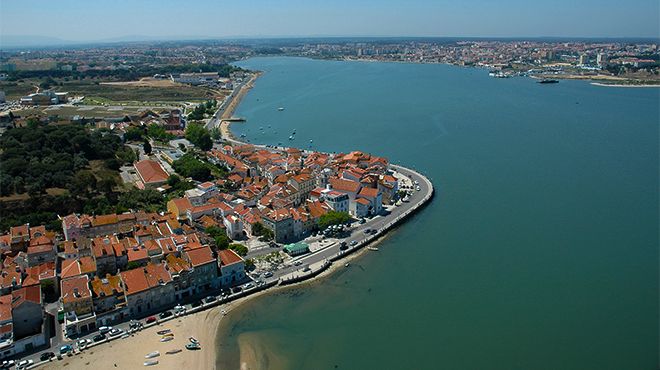Seixal

Seixal
Towns and Villages
On the south bank of the River Tagus, the extremely fertile region of Seixal was used during the Moorish occupation for introducing various Mediterranean cultures, such as vineyards, olive groves and fig trees.
Because of the characeristics of its sheltered bay, in the 14th-15th centuries Seixal was chosen for establishing naval shipyards, an industry that developed immensely at the time of the Discoveries, and has continued here over the centuries. For a long time, however, the traditional occupation of the population was fishing, which was why St Peter was chosen as the patron saint, in whose honour the council's chief festivals are held in June.
A visit to Seixal`s Municipal Eco-Museum is a must in order to gain a better knowledge of the region's history and traditions. Another suggestion is to take an excursion on a typical boat, and visit the still functioning tidal watermill at Corroios, which shows visitors the processes of an operation that was very common in the region in the 15th-16th centuries, since there were around 60 tidal watermills in this area, responsible for supplying flour to the city of Lisbon.
Because of the characeristics of its sheltered bay, in the 14th-15th centuries Seixal was chosen for establishing naval shipyards, an industry that developed immensely at the time of the Discoveries, and has continued here over the centuries. For a long time, however, the traditional occupation of the population was fishing, which was why St Peter was chosen as the patron saint, in whose honour the council's chief festivals are held in June.
A visit to Seixal`s Municipal Eco-Museum is a must in order to gain a better knowledge of the region's history and traditions. Another suggestion is to take an excursion on a typical boat, and visit the still functioning tidal watermill at Corroios, which shows visitors the processes of an operation that was very common in the region in the 15th-16th centuries, since there were around 60 tidal watermills in this area, responsible for supplying flour to the city of Lisbon.




 Explore
Explore 
 Remember and Share
Remember and Share 


